
 The papers presented at the 13th ICOS Symposium spanned the range from philosophical investigations to concerns with Olympic education, from critical discourse-analytical examinations of Olympic environmental discourses to the issues of political resistance in the Olympic movement of Puerto Rico. The event was framed by keynote addresses delivered by Professor Alberto Reppold, and by Richard Pound, Doyen of the International Olympic Committee. The Symposium was co-organized by the International Centre for Olympic Studies, and Arete: Center of Olympic Studies, at the Federal University of Espirio Santo, Vitoria, ES. Venue was the Bristol Century Plaza Hotel in Vitoria. Professor Otavio Tavares and his team of students acted as the site organizers. Abstracts of the papers given will be found below.
The papers presented at the 13th ICOS Symposium spanned the range from philosophical investigations to concerns with Olympic education, from critical discourse-analytical examinations of Olympic environmental discourses to the issues of political resistance in the Olympic movement of Puerto Rico. The event was framed by keynote addresses delivered by Professor Alberto Reppold, and by Richard Pound, Doyen of the International Olympic Committee. The Symposium was co-organized by the International Centre for Olympic Studies, and Arete: Center of Olympic Studies, at the Federal University of Espirio Santo, Vitoria, ES. Venue was the Bristol Century Plaza Hotel in Vitoria. Professor Otavio Tavares and his team of students acted as the site organizers. Abstracts of the papers given will be found below.
We wish to acknowledge the assistance of Leonardo Perovano, Nathalia Bettini and Derick Tinoco, in particular. The Symposium Proceedings will as always be freely available via the LA84 Foundation web site, later this year.
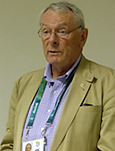 In the planning for future Olympic Games, the International Olympic Committee and the national, regional, and local hosting organizations have to address several important problems and development areas that derive from the fact that the Games have by become a mega-event. The degree of organizational preparation required, the cost structure of the event, the distributed media presence throught the dominant channel, TV coverage, and the rising importance of reporting in the social media networks, all pose challenges that will need to be addressed in order to prepare a viable future for the Olympic Games. It may well be that the IOC's Agenda 20/20 may offer approaches to possible solutions.
In the planning for future Olympic Games, the International Olympic Committee and the national, regional, and local hosting organizations have to address several important problems and development areas that derive from the fact that the Games have by become a mega-event. The degree of organizational preparation required, the cost structure of the event, the distributed media presence throught the dominant channel, TV coverage, and the rising importance of reporting in the social media networks, all pose challenges that will need to be addressed in order to prepare a viable future for the Olympic Games. It may well be that the IOC's Agenda 20/20 may offer approaches to possible solutions.
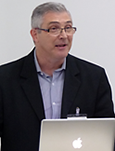 The Olympic Games have massive impacts and generate important legacies for the host cities, states and countries. These impacts and legacies may be positive or negative, intended or unintended, tangible or intangible—among other characterizations. They may also be of different types: economic, social, cultural, environmental, knowledge-based or image-based, to mention only those most cited in the literature. Mega-events require huge investments by the countries, states and cities in which they are held. In addition, they involve years of preparation, which requires the continual support of the population. For these reasons, the Olympic Games are complex and multifaceted events whose implications transcend local and national boundaries.
The Olympic Games have massive impacts and generate important legacies for the host cities, states and countries. These impacts and legacies may be positive or negative, intended or unintended, tangible or intangible—among other characterizations. They may also be of different types: economic, social, cultural, environmental, knowledge-based or image-based, to mention only those most cited in the literature. Mega-events require huge investments by the countries, states and cities in which they are held. In addition, they involve years of preparation, which requires the continual support of the population. For these reasons, the Olympic Games are complex and multifaceted events whose implications transcend local and national boundaries.
The implications of such events have raised increasing academic interest in different parts of the world and, in recent decades, scholars from various disciplines have studied them. In Brazil, the holding of four large-scale sporting events in just a decade encouraged, and to some extent required, the scientific community to examine these mega-events from different perspectives. In this Lecture Address, we deal with one particular aspect of these events, that is, their effects on the development of sport and physical education in Brazil.
We will examine the effects of the Rio 2016 Olympics with reference to the following factors: a) legislation; b) funding; c) infrastructure and equipment; d) sport education; e) school curriculum; f) professional training; g) science and technology; and h) governance.
We understand that the development of physical education and sport in the country is the result of many factors, including those mentioned above. We are aware that the selected factors are not sufficient for a comprehensive analysis of the effects of sporting mega-events on physical education and sport in Brazil. However, they are central, and an analysis that disregards such factors would be impoverished and would miss some important effects of the Olympic Games on Brazilian society.
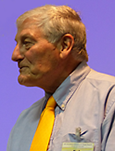 In the late nineteenth, early 20th century, one of the British Empire’s imperial appendages began to grapple with a rising tide of nationalist feeling. That “imperial appendage” was what we know today as Canada. British Crown authorities in Canada, Scots and Irish emigres, and native-born Canadians became embedded in a national debate on the future destiny of the young Dominion. The principle question: where did the social-political-economic future of Canada lie—with the persistent domination by “Mother England;” with its neighbour to the south, a young, vigorous, and ambitious United States of America; or with its own unfettered quest for independent self-identity? A half century later, by the 1960s, the issue became clearly resolved. Canada, embellishing a new national flag symbol, the distinctive red maple leaf; dismissal of the Royal Ensign (the Union Jack) as an identity icon; and friendly but restrained conduct in its relations with the U.S., cemented its national and global identity and took its place among those in the front rank of the world’s community of nations. Needless to say, the pathway towards this happenstance was influenced by numerous cultural factors and factions, among them, entities related to sport. And chief among such sporting entities, I argue, was the extraordinary effort of “Canada’s Olympic fathers,” in conceiving, preparing, and executing a quest for national/international identity recognition through its participation in the Olympic Games of 1908 celebrated in England. Indeed, the original Canadian Olympic Association and its 1908 Olympic team became the first to conceive of and champion a symbolic icon that captured the pulse of Canadians from the Maritimes and the Atlantic coast to the Pacific shores of British Columbia, and, as well, introduced a “new” Canadian image to the international community. “The Maple Leaf Forever” addresses the particulars of this saga.
In the late nineteenth, early 20th century, one of the British Empire’s imperial appendages began to grapple with a rising tide of nationalist feeling. That “imperial appendage” was what we know today as Canada. British Crown authorities in Canada, Scots and Irish emigres, and native-born Canadians became embedded in a national debate on the future destiny of the young Dominion. The principle question: where did the social-political-economic future of Canada lie—with the persistent domination by “Mother England;” with its neighbour to the south, a young, vigorous, and ambitious United States of America; or with its own unfettered quest for independent self-identity? A half century later, by the 1960s, the issue became clearly resolved. Canada, embellishing a new national flag symbol, the distinctive red maple leaf; dismissal of the Royal Ensign (the Union Jack) as an identity icon; and friendly but restrained conduct in its relations with the U.S., cemented its national and global identity and took its place among those in the front rank of the world’s community of nations. Needless to say, the pathway towards this happenstance was influenced by numerous cultural factors and factions, among them, entities related to sport. And chief among such sporting entities, I argue, was the extraordinary effort of “Canada’s Olympic fathers,” in conceiving, preparing, and executing a quest for national/international identity recognition through its participation in the Olympic Games of 1908 celebrated in England. Indeed, the original Canadian Olympic Association and its 1908 Olympic team became the first to conceive of and champion a symbolic icon that captured the pulse of Canadians from the Maritimes and the Atlantic coast to the Pacific shores of British Columbia, and, as well, introduced a “new” Canadian image to the international community. “The Maple Leaf Forever” addresses the particulars of this saga.
Residents’ support for the Olympic Games has been explored extensively in tourism and event management-related literature (Gursoy & Kendall, 2006; Zhou & Ap, 2009; Vetitnev & Bobina, 2015; Teigland, 1996; Ritchie, Shipway, & Cleeve, 2010; Kang & Perdue, 1994; Hiller & Wanner, 2015; Faulkner et. al., 2000; Deccio & Baloglu, 2002). However, research to this point in time has only focused on a single host-city bid arrangement. With recent stigmas associated to hosting the Olympic Games, such as negative economical and political impacts (Ritchie, 1984), less and less cities are willing to host and bid for an Olympic Games. Given these sources of resistance and declining bids in an age of global austerity, the IOC has changed their policy regarding host city structures to better attract bids. As a result of ‘Recommendation 1’ from the ‘Olympic Agenda 2020’, the IOC has moved its stance from solely allowing for single host-city bid arrangements to allowing for multi-host city bid arrangements. To date, no previous study has explored support in a multi-host city bid context.
Thus, the purpose of this study is to explore factors that influence Toronto resident’s overall support to hosting the 2028 Summer Olympics in Toronto. Specifically, this study will explore factors that influence Toronto resident’s support to host the 2028 Summer Olympic Games as part of a multi-host city bid arrangement, and as a single host city bid arrangement. The factors (i.e. antecedents) of resident support employed in the present investigation are consistent with Gursoy and Kendall’s (2006) model of residency for mega-sport event. These factors/antecedents include: Perceived Benefits/Costs (economic, social, and cultural), Community Concern (environment, schools, crime, recreation, culture, economic development, and roads/transportation), Community Attachment (sense of belonging to the community), Ecocentric Attitude (orientation to sound environmental practices).
A quasi-experimental survey design will be used in the present investigation. Toronto residents will be asked to complete a brief questionnaire in four strategic locations throughout the city. Residents will be randomly assigned to one of two hypothetical bid arrangements:
Our findings will shed insights on how support (and the aforementioned antecedents/factors) might differ between single and multiple-host city bid arrangements. Our study will help determine if resident support is greater for multiple-host city bid arrangements, and what particular factors are driving greater, or lesser, support. Implications for research and practice will be explored. A better understanding of residents’ support for hosting mega-sport events is critical for elected officials and bid stakeholders.
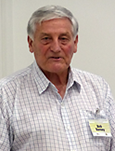 In the summer of 1908, Canada mustered its first Olympic team and sent it off to the Games of the 4th Olympiad in London, England. That delegation, arranged by a fledgling “thrown-together” Canadian Olympic Committee, federally financed, and cross-Canada represented, stands out as the first embellishers of Canada’s initial international experiment in replacing the omnipresent Royal Ensign (Union Jack) with the red Maple Leaf as the national Canadian signifier. The Olympic team leader of that delegation was Edward Archibald, chosen by his teammates and management as “team captain” and assigned the role of leading the Canadian contingent at London’s Shepherd Bush stadium in the opening ceremony parade of nations. Archibald, whose specialty was the pole-vault event, graduated from the University of Toronto in 1907, following which he became a member of the talented West End YMCA (Toronto) track and field team. Older than most of his 1908 Olympic team cohorts, he had previously participated in the Intercalary Games in Athens, Greece in the spring of 1906. He was a distinguished all-around athlete, excelling in gymnastics, the pentathlon, swimming, and team sports. By virtue of these qualifications he was a unanimous choice to preside over the team’s elected Executive Council.
In the summer of 1908, Canada mustered its first Olympic team and sent it off to the Games of the 4th Olympiad in London, England. That delegation, arranged by a fledgling “thrown-together” Canadian Olympic Committee, federally financed, and cross-Canada represented, stands out as the first embellishers of Canada’s initial international experiment in replacing the omnipresent Royal Ensign (Union Jack) with the red Maple Leaf as the national Canadian signifier. The Olympic team leader of that delegation was Edward Archibald, chosen by his teammates and management as “team captain” and assigned the role of leading the Canadian contingent at London’s Shepherd Bush stadium in the opening ceremony parade of nations. Archibald, whose specialty was the pole-vault event, graduated from the University of Toronto in 1907, following which he became a member of the talented West End YMCA (Toronto) track and field team. Older than most of his 1908 Olympic team cohorts, he had previously participated in the Intercalary Games in Athens, Greece in the spring of 1906. He was a distinguished all-around athlete, excelling in gymnastics, the pentathlon, swimming, and team sports. By virtue of these qualifications he was a unanimous choice to preside over the team’s elected Executive Council.
This study details the life and times of Edward Archibald within the context of a rising tide of Canadian nationalism following the nation’s participation in South Africa’s Boer Wars of 1888-89 and its preparation for participating in its first major international sporting event. The sources underpinning the study are drawn from the descendent Archibald family archives collection; materials dealing with 1908 Olympic matters found in the National Archives of Canada located in Ottawa; Montreal, Toronto, and Ottawa newspapers contemporary to the times examined; and available secondary sources. The methodology employed is history’s traditional narrative/analysis/interpretation approach, an approach that is largely reliant on primary source evidence. This study provides an important contribution to the story of Canada’s historical march forward from a British imperialist environ towards world recognition as an independent entity in the world’s community of nations.
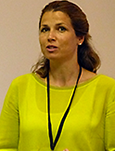 The objective of this paper is to present the IOC Olympic Studies Centre (OSC) and its role in supporting researchers and students interested in the study of the Olympic Movement, its history and ideals, and the impact of the Olympic Games on the various aspects of contemporary society and culture.This role is part of our mission of sharing Olympic knowledge through providing information, giving access to our unique collections, enabling research and stimulating the intellectual exchange related to Olympism in its largest sense.
The objective of this paper is to present the IOC Olympic Studies Centre (OSC) and its role in supporting researchers and students interested in the study of the Olympic Movement, its history and ideals, and the impact of the Olympic Games on the various aspects of contemporary society and culture.This role is part of our mission of sharing Olympic knowledge through providing information, giving access to our unique collections, enabling research and stimulating the intellectual exchange related to Olympism in its largest sense.
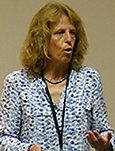 We hope that the presentation will provide an interesting snapshot from the IOC perspective as to the growth and global reach of Olympic Studies in this day and age and provide useful information on our collections and services but also in regards to research funds and network opportunities available.
We hope that the presentation will provide an interesting snapshot from the IOC perspective as to the growth and global reach of Olympic Studies in this day and age and provide useful information on our collections and services but also in regards to research funds and network opportunities available.
Today the OSC is part of the of the Olympic Foundation for Culture and Heritage and is the result of a long journey that started with Pierre de Coubertin, the founder of the IOC and the modern Olympic Games, who shortly before his death said “I have not been able to carry out to the end what I wanted to perfect. I think that an Olympic Studies Centre would aid the preservation and progress of my work more than anything else”. The OSC was finally created by President Samaranch, and after some years of being mainly an information provider, we have now moved to being an essential service and knowledge provider for the Olympic Movement and the academic community.
Due to our unique and rich collections of archives and publications and being an integral part of the IOC, we are the recognized source of reference for Olympic knowledge. This knowledge is about information, facts and figures, rigorously checked that tells the story of the Olympics of the past and can be used to shape the future. It is also about expertise of a team that helps all sorts of people in their search for the most up-to-date Olympic information.
The OSC works closely with a vast and global network of academics that contribute with their expertise to specific projects and to enrich Olympic knowledge in general. This helps us to point our users to even wider and deeper sources of information. It assists the network members as well to enrich their contacts and follow the several worldwide Olympic studies initiatives.
We create bridges between academics and professionals. Specifically, our two grant programmes are important means for strengthening exchanges between the academic community and the IOC and to enrich Olympic knowledge. Through the PhD students Research Grant Programme we support early career researchers and encourage them to include in their PhD thesis analysis on the Olympic phenomena.
The Advanced Olympic Research Grant Programme aims to encourage established researchers to conduct projects in IOC priority fields of research.
In fact, all our services and programmes share the objective of promoting Olympic related research. This is because we strongly belief that high quality and relevant academic analysis can and should inspire Olympic Movement professionals and play a very important role in enriching the dialogue between the Olympic Movement and society.
Following the formal addition of legacy to the Olympic Charter in 2002 (International Olympic Committee, 2013), there is now an unprecedented expectation that hosts of the Olympic Games must demonstrate that the event will leave a positive social legacy after it has finished. This requirement is increasingly approached in part by drawing upon the event’s perceived capacity to increase physical activity (PA) participation in the host nation, primarily under the assumption that the elite sport on show during the event will encourage - or 'inspire' - more people to become permanently involved in regular exercise or sport participation. However, a range of social factors suggest mass participation-based PA legacy objectives of this nature to be particularly problematic. These include the respective roles and responsibilities of the multitude of different organizations and actors that must co-operate in order to increase PA participation, the practical difficulties that must be overcome in order to encourage previously inactive individuals to turn to exercise, and the empirical challenge of proving the effect of the Games on PA conclusively.
This work provides a critical examination of the PA participation legacy policies and rhetoric employed in relation to London 2012 and Rio 2016—the first two summer Olympic host cities to be selected following the formal incorporation of legacy into the Olympic Charter in 2002. The interaction between the practical factors discussed above and the respective social and cultural contexts of the UK and Brazil therefore offers a useful vantage point from which to consider an increasingly prominent aspect of contemporary rationales for hosting the Olympic Games - as well as the broader implications that the case of PA participation legacies may have for all forms of legacy that are emphasized by contemporary Olympic hosts.
Following this introduction, the work is therefore organized into two main parts. First, the PA participation legacy of London 2012 is reviewed, starting with the bidding and preparation stages and finishing with the three years that have passed since the staging of this event. Second, the same approach is taken in relation to the way PA has been articulated and approached in the lead-up to Rio 2016. Finally, the concluding section draws these two cases together in order to demonstrate the broader significance of these approaches to PA legacy strategies in relation to both the broader concept of Olympic legacy as well as the need to consider the specific cultural and political dimensions of different host cities and nations.
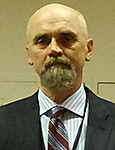 The issue of environmental sustainability has taken on increasing importance in the legitimization of international sports festivals over the past fifteen or twenty years. On the one hand, the increasing urgency of political debates around the issue of ecological sustainability as a political priority on a global scale has led to contested policy declarations such as that of Paris 2016. This political context, on the other hand, has added to the political pressures brought to bear on the organizers of large-scale international sporting events such as the International Olympic Committee, likewise to develop policies geared towards managing, inter alia, the environmental effects brought to bear on the temporary hosting environments by virtue of the Olympics’s scale as a mega event.
The issue of environmental sustainability has taken on increasing importance in the legitimization of international sports festivals over the past fifteen or twenty years. On the one hand, the increasing urgency of political debates around the issue of ecological sustainability as a political priority on a global scale has led to contested policy declarations such as that of Paris 2016. This political context, on the other hand, has added to the political pressures brought to bear on the organizers of large-scale international sporting events such as the International Olympic Committee, likewise to develop policies geared towards managing, inter alia, the environmental effects brought to bear on the temporary hosting environments by virtue of the Olympics’s scale as a mega event.
Explicit policy initiatives on part of the IOC in response to those challenges, and in the wake of the United Nations’a Agenda 21, first became visible during the 1994 Lillehammer Olympic Winter Games, when the organizational implementation of the Games sought to adhere to the precepts of, Our Common Future, a policy implementation statement developed in the context of Agenda 21. In consequence, the IOC’s initial fundamental policy statement on the issue, devoted several chapters to the definition of its understanding of environmental sustainability.
In implementing such policies, a strategic issue is constituted by the functional necessity to articulate a discourse on environmental sustainability to the varying local contingencies of the host community, on the one hand, and to the representational — ‘branding’ — requirements of its sponsors, on the other. Added to this discursive configuration is the fact that the IOC and Olympic Movement’s own motto (‘citius - altius - fortius’) implies in its own way a processual rationale that points towards expansion rather than sustainability. These divergent discursive elements have to be mediated within the discursive space offered by the specific hosting community and polity.
Taking this discursive configuration as its starting point, this paper investigates major discursive alignments invoking ‘sustainability’ that were in circulation in the context of the Vancouver 2010 Winter Olympic Games. Drawing on qualitative data gathered from dominant media production sites, we argue that three dominant thematic domains structured the discourse on Olympic environmental sustainability at the Vancouver Games. These dominant themes invoked the natural scenery of the host city and province; the sustainability initiatives purportedly organized by major sponsors; and the discourse on Olympic performance itself, placed in the service of a narrative validating Olympic sustainability.
 The mediated growth of the Olympic Games has impacted the representation and consumption of competing identities. It is important to examine young people's understanding of Olympic athletes, since consumption of sports media is an important resource as they develop identities (Bruce and Lines, 2000). Traditionally, the perception of sports heroes has been dominated by masculine virtues and social ideals (Lines, 2001). This paper explores how young people perceive and respond to Olympic athlete identification.
The mediated growth of the Olympic Games has impacted the representation and consumption of competing identities. It is important to examine young people's understanding of Olympic athletes, since consumption of sports media is an important resource as they develop identities (Bruce and Lines, 2000). Traditionally, the perception of sports heroes has been dominated by masculine virtues and social ideals (Lines, 2001). This paper explores how young people perceive and respond to Olympic athlete identification.
Drawing on theoretical perspectives of gender and identification, the feminist concept of intersectionality is utilised to examine how identities are multi-faceted. Intersections of Olympic, athletic and social identity are examined. Focus groups were conducted with young people, aged eleven to eighteen years of age. Participants were asked to describe an Olympic athlete and detail their perceptions and preferences.
Qualitative content analysis was conducted to examine the construction of participants’ meanings and descriptors. This provided an opportunity to explore young people’s competing definitions of Olympic athlete identification and how that impacts their feelings towards the subject. Results indicated that athletic competence intersected with Olympic athletic identity, in conjunction with tactical skill. Howevern awareness and emphasis of feminine/heterosexuality intersected with identification of sportswomen as Olympic athletes. Young people’s competing perceptions and preferences of Olympic athletes are value laden. It provides opportunities to reinforce, negotiate and resist stereotypical definitions of athletic identity and competence. It is vital to address broader notions of Olympic athlete identification and consumption.